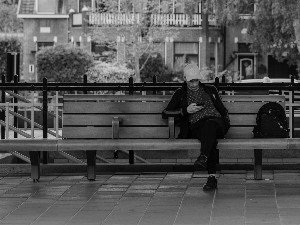Didi Pramono, Junita Dwi Fransiska, Siti Lubna Askhiya , Yolinda Pramudanti
Edukasi Kesehatan Masyarakat Melalui Kegiatan Donor Darah Desa
Introduction
Edukasi kesehatan masyarakat melalui kegiatan donor darah desa. Tingkatkan kesadaran & partisipasi masyarakat Ngemplak dalam donor darah melalui edukasi kesehatan. Kegiatan pengabdian ini berhasil mengumpulkan 30 pendonor.
Abstract
The purpose of this community service is to increase community awareness and involvement in blood donation. The community service approach applied is Participatory Rural Appraisal (PRA), which invites the community to get involved and participate. The method used is socialization and assistance for blood donors. The target community for the activity is the community of Ngemplak Village, Kudus. The activity was carried out on August 4, 2024 in collaboration with the Indonesian Red Cross. The results of the activity were that the community was very enthusiastic about participating in the socialization event and participating in donating their blood for humanity. A total of 30 villagers donated their blood, and the rest were unable to donate their blood for health reasons. The requirements for someone to be able to donate blood are a minimum age of 17 years, a maximum of 60 years, a minimum weight of 50 kg, physically and mentally healthy. not taking medication, not suffering from infectious diseases such as Hepatitis, Syphilis and others, for women not pregnant, breastfeeding, or menstruating, 2 hours before donating blood, eat first, get enough rest, sign the Informed Consent (Identity, medical history, and blood are examined and willing to be told the results).
Review
The submitted abstract for "Edukasi Kesehatan Masyarakat Melalui Kegiatan Donor Darah Desa" outlines a highly relevant and impactful community service initiative focused on increasing awareness and involvement in blood donation. The stated purpose is clear and directly addresses a critical public health need, particularly in fostering a culture of altruism and civic engagement at the grassroots level. The application of the Participatory Rural Appraisal (PRA) approach is commendable, as it ensures community ownership and active participation, which is vital for the sustainability and effectiveness of such programs. The collaboration with the Indonesian Red Cross (PMI) further strengthens the credibility and operational capacity of the activity. The abstract effectively communicates the success of the activity, noting the community's enthusiasm for both the socialization event and the subsequent blood donation. The quantitative result of 30 villagers donating blood provides a concrete measure of immediate impact. While the inclusion of comprehensive blood donor requirements is valuable for public health education and transparency, its placement within the "results" section could be refined. Perhaps framing these details as part of the educational component provided during socialization, or as a reason for some participants being unable to donate, would better integrate them with the narrative of the activity's outcomes. Further context regarding the total number of attendees or the target number of donors would also enrich the understanding of the 30 donations. Overall, this community service report demonstrates a well-executed initiative with tangible positive outcomes. It successfully highlights the importance of localized health education efforts and the power of community engagement in addressing public health challenges. For future iterations or subsequent reports, it would be beneficial to discuss the potential for long-term impact, such as sustained awareness or recurring donation cycles, and how this initial activity might serve as a foundation for broader health initiatives in Ngemplak Village. The work is a valuable contribution to the literature on community-based health interventions and is highly recommended for publication, offering practical insights into effective community engagement strategies.
Full Text
You need to be logged in to view the full text and Download file of this article - Edukasi Kesehatan Masyarakat Melalui Kegiatan Donor Darah Desa from Jurnal Bina Desa .
Login to View Full Text And DownloadComments
You need to be logged in to post a comment.
Top Blogs by Rating
The Gamification of Governance...
By Sciaria
The Spiritual Shelf Life: Navi...
By Sciaria
Are You Just a Colony? The Int...
By Sciaria
Favorite Blog
Unleash Your Inner Explorer: T...
By Sciaria
Unlock Your Brainpower: Master...
By Sciaria
Beyond Impatience: A Philosoph...
By Sciaria





